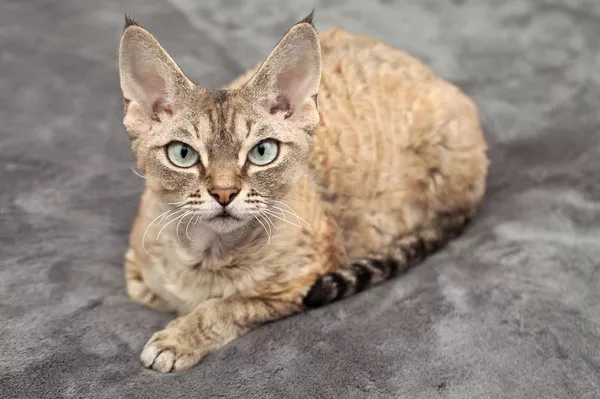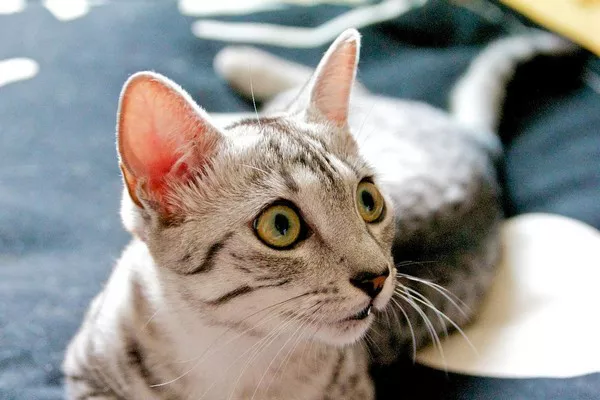Devon Rex cats, known for their unique appearance and playful nature, are generally sociable and affectionate companions. However, like any cat breed, individual cats can exhibit aggression under certain circumstances. In this article, we explore the factors that may contribute to aggression in Devon Rex cats, shedding light on their behavior, potential triggers, and strategies for managing and preventing aggressive tendencies. Understanding the underlying causes of aggression can help foster a harmonious relationship between cat owners and their beloved Devon Rex companions.
Devon Rex Cats:
Devon Rex cats are a distinctive breed known for their curly or wavy fur, large ears, and mischievous expression. They are typically described as intelligent, active, and social cats that form strong bonds with their human family members. While their playful and affectionate nature is a defining characteristic, aggression can occasionally manifest in some individuals.
Understanding Aggression in Cats:
Aggression is a normal behavior displayed by cats in various situations, including territorial disputes, fear, redirected aggression, play aggression, or pain-related aggression. Aggression serves as a means of communication and defense for cats. However, excessive or inappropriate aggression can pose challenges in maintaining a harmonious household environment.
Why are Devon Rex cats aggressive?
1. Genetic Factors:
Genetics may contribute to certain behavioral tendencies in Devon Rex cats, including aggression. Breeding practices and genetic traits passed down through generations can influence a cat’s temperament. While Devon Rex cats are not typically known for aggression, individual variations may arise due to genetic factors.
2. Socialization and Early Experiences:
Proper socialization during a cat’s early developmental stages is crucial for shaping their behavior and responses to various stimuli. Insufficient or inadequate socialization can lead to fearfulness, anxiety, and potentially aggressive behaviors. Positive interactions with humans, exposure to different environments, and socializing with other cats and animals are essential components of early socialization.
3. Fear and Anxiety:
Fear and anxiety can trigger aggression in cats, including Devon Rex cats. Situations that provoke fear, such as loud noises, unfamiliar visitors, or traumatic experiences, can elicit defensive aggression. Understanding and minimizing potential stressors in a cat’s environment can help reduce fear and anxiety-related aggression.
4. Medical Issues:
Underlying medical conditions can contribute to changes in a cat’s behavior, including aggression. Pain, discomfort, or illness can cause a typically docile cat to exhibit aggressive tendencies as a defensive response. It is essential to rule out any underlying health issues by consulting with a veterinarian if aggression appears suddenly or without apparent triggers.
5. Play Aggression and Overstimulation:
Play aggression is a common behavior observed in many cats, including Devon Rex cats. During play, cats may exhibit stalking, biting, or scratching behaviors, which can sometimes escalate and become aggressive. Overstimulation, such as excessive petting or rough play, can trigger aggressive reactions. Understanding a cat’s play preferences and setting boundaries during play sessions can help manage and redirect play aggression.
6. Resource Guarding and Territorial Aggression:
Cats are territorial animals, and resource guarding can be a potential source of aggression. Devon Rex cats may exhibit aggression when they feel their territory, food, toys, or resting places are being invaded or threatened. Providing multiple resources, such as litter boxes, food bowls, and resting areas, can help minimize conflicts and reduce territorial aggression.
7. Hormonal Factors:
Hormonal changes, particularly in unneutered or unspayed cats, can influence behavior and potentially contribute to aggression. Hormones associated with sexual maturity, such as testosterone in males, can intensify territorial and aggressive tendencies. Spaying or neutering a cat can often help reduce hormonal influences and decrease the likelihood of aggression.
Managing and Preventing Aggression in Devon Rex Cats:
a. Early Socialization: Ensuring proper socialization from a young age is vital for Devon Rex cats. Positive experiences with humans, exposure to different environments, and interactions with other animals can help promote sociability and reduce the likelihood of aggressive behaviors.
b. Environmental Enrichment: Providing a stimulating and enriched environment for a Devon Rex cat can help alleviate boredom, frustration, and pent-up energy that may contribute to aggressive behaviors. Interactive toys, scratching posts, climbing structures, and environmental exploration can channel their energy into positive outlets.
c. Positive Reinforcement Training: Employing positive reinforcement training techniques can help shape desirable behaviors and discourage aggression. Rewarding desired behaviors with treats or praise while avoiding punishment-based training methods fosters a positive and trusting relationship between the cat and their owner.
d. Regular Veterinary Care: Regular check-ups with a veterinarian are essential to monitor a cat’s health and identify any underlying medical issues that may contribute to aggression. Addressing any potential health concerns promptly can help alleviate discomfort and reduce aggressive behaviors.
e. Neutering/Spaying: Having a Devon Rex cat spayed or neutered can help manage hormonal influences and reduce the likelihood of territorial and aggressive behaviors associated with sexual maturity.
f. Consultation with a Professional: If aggression persists or escalates despite implementing management strategies, consulting with a professional, such as a veterinarian or animal behaviorist, is recommended. They can provide tailored advice, behavior modification techniques, and further guidance to address the specific needs of the cat.
Conclusion:
While Devon Rex cats are generally known for their playful and sociable nature, aggression can manifest in some individuals under certain circumstances. Understanding the potential causes of aggression in Devon Rex cats, such as genetic factors, socialization, fear, medical issues, play aggression, resource guarding, and hormonal influences, can help cat owners better manage and prevent aggressive behaviors. By providing a supportive environment, early socialization, appropriate training, and regular veterinary care, owners can foster a harmonious relationship with their beloved Devon Rex companions and ensure their well-being and happiness.



























